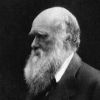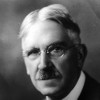“ The natural man lives for himself; he is the unit, the whole, dependent only on himself and on his like. ”
Jean-Jacques Rousseau, Emile, or On Education (1762). copy citation
| Author | Jean-Jacques Rousseau |
|---|---|
| Source | Emile, or On Education |
| Topic | living |
| Date | 1762 |
| Language | English |
| Reference | |
| Note | Translated by Barbara Foxley |
| Weblink | http://www.gutenberg.org/cache/epub/5427/pg5427-images.html |
Context
“Among strangers the Spartan was selfish, grasping, and unjust, but unselfishness, justice, and harmony ruled his home life. Distrust those cosmopolitans who search out remote duties in their books and neglect those that lie nearest. Such philosophers will love the Tartars to avoid loving their neighbour.
The natural man lives for himself; he is the unit, the whole, dependent only on himself and on his like. The citizen is but the numerator of a fraction, whose value depends on its denominator; his value depends upon the whole, that is, on the community. Good social institutions are those best fitted to make a man unnatural, to exchange his independence for dependence, to merge the unit in the group, so that he no longer regards himself as one, but as a part of the whole, and is only conscious of the common life.”
source



